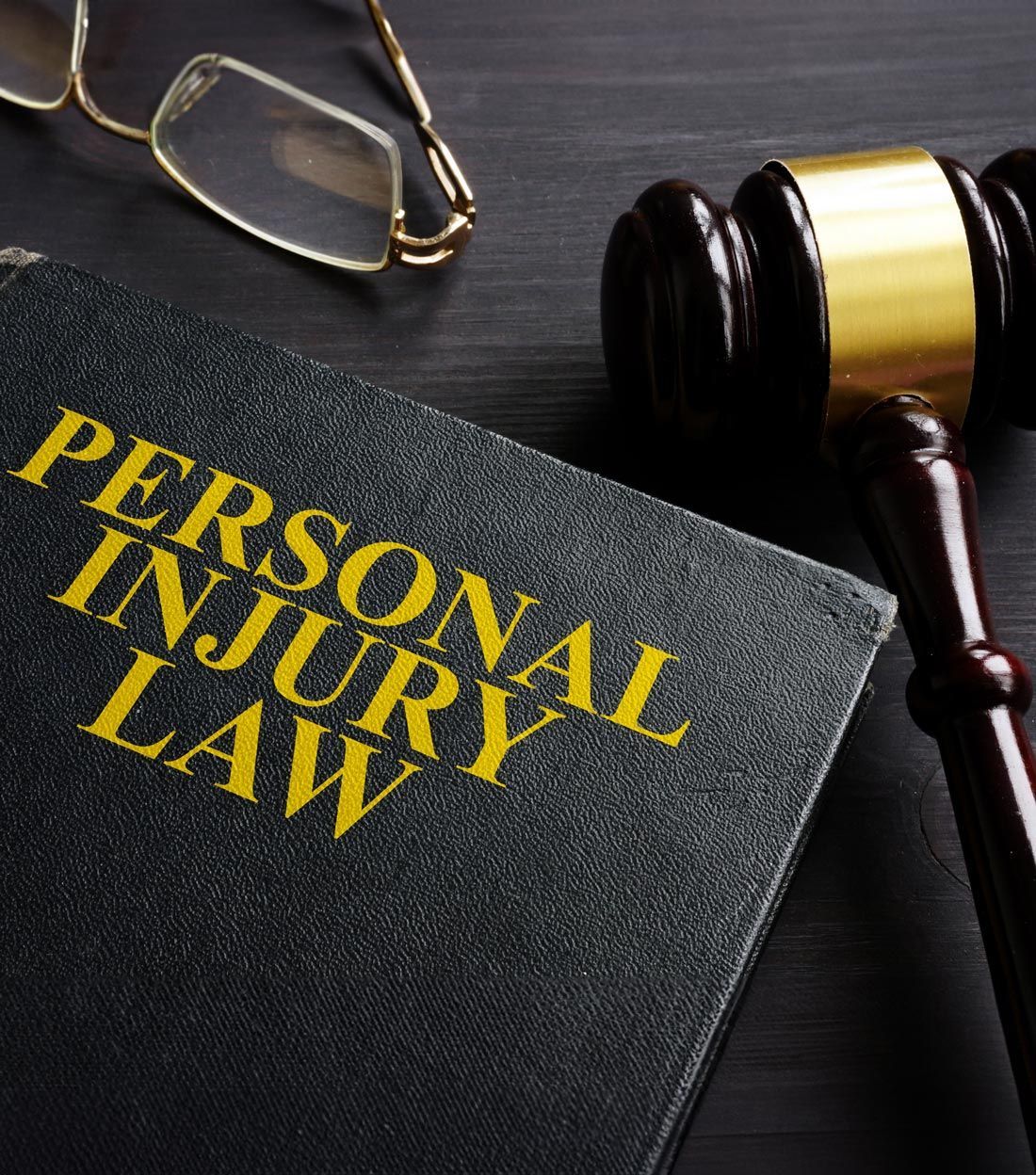Over 30 years Of Civil Law Experience at Remley Law Firm in Cape Girardeau, MO
At Remley Law Firm in Cape Girardeau, MO, we're ready to help with your civil law issues. With over 30 years of experience in handling matters like contract disputes, property problems, personal injury claims, and more, with our guidance, you can face these challenges with confidence. Call us at (573) 334-2079 today and let our expertise work for you.
Personal Injury
Personal injury is a legal term for an injury to the body, mind, or emotions, as opposed to an injury to property.
In Anglo-American jurisdictions, the term is most commonly used to refer to a tort lawsuit alleging that the negligence of another has caused the plaintiff's injury, but it also arises in defamation torts. Damages include:
- Bodily injury.
- Intentional infliction of emotional distress (IIED).
- Negligent infliction of emotional distress (NIED).
The most common types of personal injury claims are
- road traffic accidents
- accidents at work
- tripping accidents
- assault claims
- accidents in the home
- product defect accidents (product liability)
- holiday accidents.

The term personal injury also incorporates medical and dental accidents (which lead to numerous medical negligence claims every year) and conditions that are often classified as industrial disease cases, including asbestosis and peritoneal mesothelioma, chest diseases (e.g., emphysema, pneumoconiosis, silicosis, chronic bronchitis, asthma, chronic obstructive pulmonary disease, and chronic obstructive airways disease), vibration white finger, occupational deafness, occupational stress, contact dermatitis, and repetitive strain injury cases.
Depending upon the intent or negligence of a responsible party, the injured party may be entitled to monetary compensation from that party through a settlement or a judgment. This system is complex and controversial in the United States, with critics calling for various forms of tort reform. Attorneys often represent clients on a "contingent fee basis," the attorney's fee is a percentage of the plaintiff's eventual compensation, payable when the case is resolved, with no payment necessary if the case is unsuccessful. Legal aid from the government may not be available; for example, it was largely abolished in England in the late 1990s and replaced with arrangements whereby the client would be charged no fee if their case was unsuccessful.
Wrongful Death
Wrongful death is a claim against a person who can be held liable for a death. The claim is brought in a civil action, usually by close relatives, as enumerated by statute. Under common law, a dead person cannot bring a suit, which created a loophole in which activities resulting in a person's injury would result in civil sanction. Still, activities that resulted in a person's death would not.
The standard of proof in the United States is typically preponderance of the evidence instead of clear and convincing or beyond a reasonable doubt. It is often easier for a family to seek retribution against someone who kills a family member through tort than a criminal prosecution. However, the two actions are not mutually exclusive; a person may be prosecuted criminally for causing a person's death (whether in the form of murder, manslaughter, criminally negligent homicide, or some other theory), and that person can also be sued civilly in a wrongful death action (as in the O. J. Simpson murder case). Wrongful death is also the only recourse available in the United States when a company, not an individual, causes the death of a person; for example, historically, families have tried (both successfully and unsuccessfully) to sue tobacco companies for the wrongful deaths of their customers.

Auto Accident Law
Missouri has several laws that could affect any car accident settlement or court case filed in the state. In this article, we'll look at some of these laws, including how long an injured person has to file a lawsuit after an accident and how Missouri's status as a "pure" comparative negligence state affects compensation.
The Statute of Limitations: Lawsuit Deadlines in Missouri
Like all states, Missouri has laws limiting the time you must go to court and file a lawsuit after a car accident.
In Missouri, anyone injured in a car accident must file a lawsuit five years from the accident date. You are also limited to five years for lawsuits involving only property damage caused by a car accident (i.e., damage to your vehicle). See the full text of this law in Missouri Revised Statutes section 516.120.
Missouri's five-year statute of limitations only affects how long you must file a court case. It doesn't limit the time you have to file an insurance claim. Your insurance policy will contain any relevant deadlines. No matter how long your insurance company gives you to file, it's wise to file your claim as soon as possible if you suffer injury or vehicle damage in a car accident. Filing near the beginning of the five-year statutory "window" gives you and your insurance company plenty of time to negotiate a settlement while leaving you the vital option of taking your case to court if you need to.
Missouri's Comparative Fault Rules
Missouri also has laws that dictate how a car accident case is handled if more than one party is to blame for causing the accident. Missouri follows a "pure" comparative fault rule like several other states.
Pure comparative fault works like this: Suppose you file a lawsuit in court after you are injured in a car accident. After hearing your case, the jury decided the total damages award should be $10,000. The jury also finds the other driver 80 percent at fault for the accident and deems you 20 percent at fault.

Under Missouri's pure comparative fault rule, you will receive 80 percent of the total damages amount, or $8,000, in this example. This number represents the total damages multiplied by the percentage of fault the other driver was found to have. You can also think of it as the total amount of damages minus the percentage of fault you were found to have. Since Missouri is a "pure" comparative fault state, this formula remains the same regardless of the amount of fault you are found to have -- you can always recover some damages from another at-fault party.
Missouri Car Insurance Laws and Regulations
Missouri laws require drivers to carry certain kinds and amounts of vehicle insurance coverage. For more information on these requirements, see our companion article, Car Insurance Laws in Missouri.
Worker’s Compensation
The Workers’ Compensation system in Missouri is a statutory program designed to protect both injured employees and their employers. The system all but guarantees that injured workers are compensated for work related injuries while capping the size of the compensation and protecting employers from being sued in the civil court system.

Missouri’s Workers’ Compensation system requires Employers to provide to injured workers, usually through specialized insurance, four different benefits: medical treatment, Temporary Total Disability payments, Permanent Partial and in cases of very severe injury, Permanent Total Disability benefits.
Medical Care: When an employee is injured on the job, the Employer is required to provide what is called “reasonable medical aid” to “relieve and cure” the effects of the injury event and get the worker to the point of “maximum medical improvement”, meaning that the employee is entitled to medical treatment to get him or her healed as much as possible. In exchange for the requirement of providing this medical care, the Employer is permitted to direct the medical care by selecting medical providers and approving the care provided to the injured worker
Temporary Total Disability payments: It frequently happens that immediately after an injury or after certain surgical procedures a worker might not be able to return to work for a time. When that occurs, if the period of disability is more than three days, the Employer is required to pay to the worker a portion of the workers usual income until the work restrictions are lifted and the employee can return to work. The amount of this weekly benefit is two-thirds of the workers Average Weekly gross income for the thirteen weeks leading up to the date of injury, not to exceed a state-wide maximum.
Permanent Partial Disability payments: Through the course of medical treatment the injured worker receives, eventually the workers will be declared to be at Maximum Medical Improvement, meaning that his condition will not be materially improved even with more treatment. Even though injuries can be healed and even though the worker’s condition is better after treatment ends, it is rare that the worker’s condition can be restored to a pre-injury status. The Permanent Partial Disability benefit is intended to compensate the worker for that permanent loss of health.
This benefit is measured by units of disability based on the percentage of functional loss of the injured body part. Each unit of disability is worth two-thirds of the workers Average Weekly gross income for the thirteen weeks leading up to the date of injury, not to exceed a state-wide maximum.
Permanent Total Disability benefit: In rare cases, the injured worker is hurt to the point that he or she cannot return to work. In that event, the Employer is obligated to pay weekly benefits to the injured worker or his or her dependents for the rest of the worker’s life. This weekly benefit is calculated just the same as the Temporary Total Disability benefit payment.
Because Employers and their insurance companies are normally represented by lawyers in comp cases, injured workers can strongly benefit from having their own representation to protect their interests.
Contact us today at 573-334-2079 and let us get started on your case